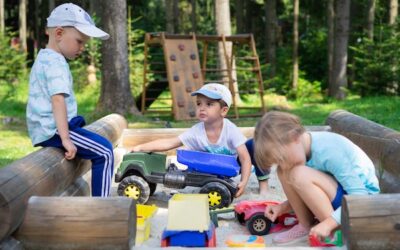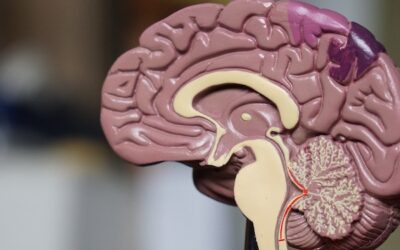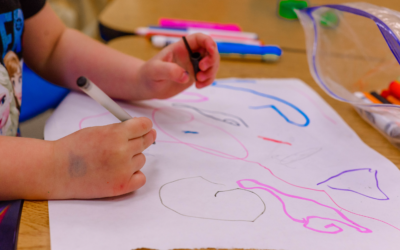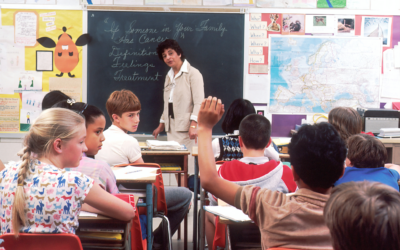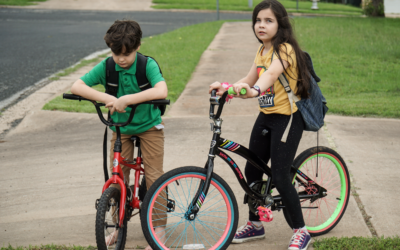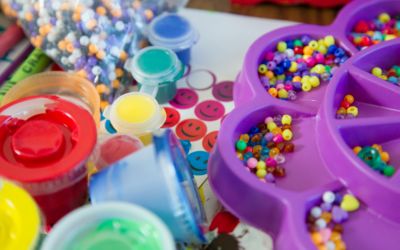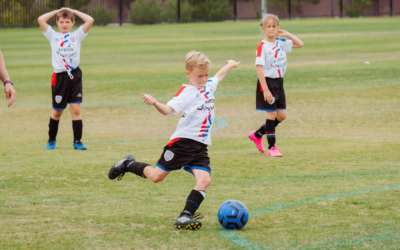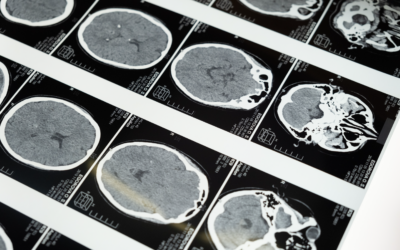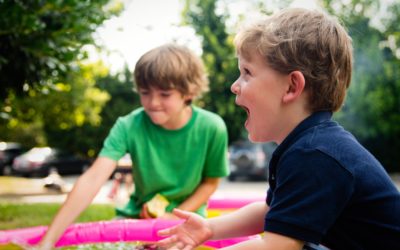Media
Want to better understand
mental health in students?
We can help.

Put Down Devices, Let Your Mind Wander, Study Suggests
People consistently underestimate how much they would enjoy spending time alone with their own thoughts, without anything to distract them, according to research published by the American Psychological Association.
Music Students Score Better in Math, Science, English Than Nonmusical Peers
High schoolers who take music courses score significantly better on exams in certain other subjects, including math and science, than their nonmusical peers.
Weight-Based Bullying Linked to Increased Adolescent Alcohol, Marijuana Use
Adolescents who are bullied about their weight or body shape may be more likely to use alcohol or marijuana than those who are not bullied, according to new research
Keeping Teens Safe on Social Media: What Parents Should Know To Protect Their Kids
A multipronged approach to social media management, including time limits, parental monitoring and supervision, and ongoing discussions about social media can help parents protect teens’ brain development.
Cyberbullying: What Is It and How Can You Stop It?
Research has long linked more screen time with lower psychological well-being, including higher rates of anxiety and depression. The risk of harm is higher when kids and teens are victimized by cyberbullying.
The Reality of Pediatric Long COVID
Lucas Denault, a high school senior from Littlestown, Pennsylvania, woke up one day in January 2021 with a stuffy nose. He tested positive for COVID-19, but felt better by dinnertime. Then, 10 weeks later, everything changed.
The Lasting Impact of Neglect
Psychologists are studying how early deprivation harms children — and how best to help those who have suffered from neglect.
Keeping Youth Engaged in School
The science of mindset has revolutionized education. Decades of research have shown that when students believe they can get smarter with effort, they work harder and achieve more. But it isn’t always that simple.
Maximizing Children’s Resilience
New psychological research points the way toward boosting resilience in children at risk, particularly the importance of supporting parents and early interventions for children and adolescents.
Students Do Better in School When They Can Understand, Manage Emotions
Students who are better able to understand and manage their emotions effectively, a skill known as emotional intelligence, do better at school than their less skilled peers.
Single Parenting and Today’s Family
Today single parent families have become even more common than the so-called “nuclear family” consisting of a mother, father, and children. Today we see all sorts of single parent families: headed by mothers, fathers, and even by a grandparent raising their grandchildren.
Potential Harms, Benefits of Social Media For Kids
When it comes to the potential risks or benefits of social media for children, we should not look at social media as a whole but instead focus on specific features and behaviors that are built into social platforms.
Rising Parental Expectations Linked to Perfectionism In College Students
Rising parental expectations and criticism are linked to an increase in perfectionism among college students, which can have damaging mental health consequences, according to new research.
Obesity And the Growing Brain
Body fat and an unhealthy diet may impair brain function and lead to cognitive problems in children.
Parents Overestimate Differences in Their Children
Though most siblings have somewhat similar temperaments, parents often perceive their children as different as night and day, suggests a new study.
Making Stepfamilies Work
Parents of a blended family face plenty of challenges, but there are things you can do to make communication easier and help children adjust to their new reality.
How Long Does the Preschool Advantage Last?
Children who attend preschool enter kindergarten with greater skills than those who don’t, but that advantage is nearly halved by the end of the year as their counterparts quickly begin to catch up, according to new research.
Helping Children Get a Good Night’s Sleep
In adults, sleep is key for memory consolidation, mood regulation and general well-being. In children, it’s also critical for developing healthy cognitive, behavioral and physical functioning.
Even Toddlers Care What Others Think
By the time toddlers are forming two-word sentences, they are already aware that they may be judged by others, behavior that previously wasn’t believed to emerge until years later, according to new research.
Children in Single-Parent Households and Stepfamilies Benefit Most Socially from Time with Grandparents
Spending time with a grandparent is linked with better social skills and fewer behavior problems among adolescents, especially those living in single-parent or stepfamily households, according to a new study.
Bring Back Old-Fashioned Play
Years ago, if you gave a kid a lump of Play-Doh, she might roll it around in her hands and shape it into a ball, a lion or some other figment of her imagination. These days, kids are more likely to look at that lump, scratch their heads and say, “What does it do?”
Are Your Kids Stressed About Family Finances?
Whether from a recent job loss, the added costs of inflation, or longer-term challenges, families dealing with financial strain might find themselves faced with worries: What’s the best way to discuss financial limits as a family without stressing out children?
Prenatal Alcohol Exposure Shapes Sensory Preference, Upping the Odds of Later Alcohol Use and Abuse
Prenatal Alcohol Exposure/Fetal Alcohol Syndrome: Young people whose mothers drank when pregnant may be more likely to abuse alcohol because, in the womb, their developing senses came to prefer its taste and smell.
Equals Positive Children’s Behavior, Peacebuilders Program Teaches Social Competence
Creating a pro-social school environment increases the frequency of children’s positive behavior, develops their social skills, and may limit future aggressive behaviors.
Parent-Child Interactions
Infants and toddlers first interactions with their parents. Newborn babies are often placed naked on their mother’s bare chest immediately after birth. This “skin to skin” experience has been shown to promote greater infant respiratory, temperature, and glucose stability, and to reduce crying (an indicator of decreased stress).
What Parents Should Know About the Treatment of Behavioral and Emotional Disorders in Preschool Children
The number of children diagnosed with and treated for disruptive disorders including attention deficit/hyperactivity disorder (ADHD) has markedly increased over the last decade. Concurrent with this trend is a growing debate about the best way to treat such problems in children.
Students Do Better in School When They Can Understand, Manage Emotions
Emotionally intelligent students get better grades and higher test scores. Students who are better able to understand and manage their emotions effectively, a skill known as emotional intelligence, do better at school than their less skilled peers, as measured by grades and standardized test scores, according to research published by the American Psychological Association.
Lab Work: Catching Kids Early
Pitt Parents and Children Lab at the University of Pittsburgh have found that providing parents with one positive parenting intervention can lead to fewer destructive behaviors even a decade later.
Making the Translation–Nix the Tics
New research debunks Tourette’s syndrome myths and lays the groundwork for a behavioral intervention. It is agreed by most researchers, Tourette’s syndrome is mainly biological.
New Research Suggests Possible Direction for Treatment of Autism
In the first successful experiment with humans using a treatment known as sensory-motor or environmental enrichment, researchers documented marked improvement in young autistic boys when compared to boys treated with traditional behavioral therapies, according to research published by APA.
Medicating ADHD: Too Much? Too Soon?
The controversial subject of medicating children with ADHD was the focus of several APA 2001 Annual Convention sessions. Among the experts in the area is Gretchen LeFever, PhD, of Eastern Virginia Medical School–one of the few researchers systematically collecting epidemiological data on the extent of medication use for ADHD.
Losing an Autism Diagnosis
Deborah Fein, PhD, was a psychologist in the 1970’s and became fascinated that a few of her patients with autism spectrum disorder had become symptom free by age 7. Since then, it has become clearer that a small subset of children do, clinically speaking, lose the ASD diagnosis.
From Risk to Resilience: Parents Offer Protection
While the nation has made substantial progress in responding to poverty and poverty-related conditions, some of its most devastating and destructive impacts remain most prevalent in children and are too often passed down from one generation to the next.
Effective Education for Autism
Although, there are many medications to help with some symptoms of autism–the major treatment for autism is early and ongoing educational intervention.
Diagnosing and Managing Autism Spectrum Disorder
Autism Spectrum Disorder (ASD) is a complex neurodevelopmental disorder that affects behavior, communication and social functioning. According to the latest figures from the U.S. Centers for Disease Control and Prevention, an estimated 1 in 68 children in the U.S. have ASD.
Coaching Adults, Students, and Young Kids with ADHD
Children, adolescents and adults with attention-deficit/hyperactivity disorder (ADHD) don’t necessarily need psychotherapy, says psychologist Abigail Levrini, PhD. What they often do need is help getting themselves organized and reaching their goals—coaching, in short.
Choline Shows Promise in Reducing Behavioral Effects Associated with Prenatal Alcohol Exposure
Nutritional supplement given after birth improves learning and behavior in rats exposed to alcohol during development. Giving choline to infants who were exposed in the womb to alcohol may mitigate some of the resulting problems. Prenatal alcohol exposure affects physical and central nervous system development, putting children at risk for fetal alcohol spectrum disorders that at their worst include full-blown fetal alcohol syndrome.
Catching Autism Earlier
One in 88 children is the number of U.S. children with autism. Psychologists need to understand how mental disorders manifest in people with autism spectrum disorder (ASD).
Autism Ups Stress for Mothers
Mothering a child with autism may be more stressful than mothering one with developmental delays, concludes a July study published online in Autism.
Attention and Autism Spectrum Disorder
Autism Spectrum Disorder (ASD) is a class of neurodevelopmental conditions characterized by difficulties with communication and social interactions, as well as restricted or repetitive patterns of behavior. Although not considered in the core diagnostic criteria, attention problems are also common in ASD.
An ADHD Diagnosis in Adulthood Comes with Challenges and Benefits
ADHD has three subtypes, which include hyperactive impulsive, primarily inattentive, and combined. With inattentive type, the restlessness is internal.
A new opportunity to improve children’s mental health care
Data show that children are more likely to have mental health disorders than physical ailments, yet most children never receive the care they need because of stigma, cost and a shortage of mental health specialists, according to a report from the American Academy of Pediatrics (AAP).
Medicate or Not?
Attention-deficit hyperactivity disorder: Both behavioral therapy, such as parent education and classroom interventions and pharmacological treatments such as central nervous system stimulants can be effective in acute cases, said the group. Combining them can yield better short-term outcomes than using either alone and also enables the use of lower doses of medication.
A Hidden Epidemic of Fetal Alcohol Syndrome
Since alcohol use has increased since the pandemic, researchers have found this pattern to also be among pregnant women as well. “Experts estimate that 2% to 5% of U.S. schoolchildren—as many as 1 in 20—may be affected by prenatal alcohol exposure, which can cause complications with growth, behavior, and learning. The effects on individuals and families, as well as the economic costs, are substantial.”
Children with Autism Found to have Specific Memory Problems
Researchers at the University of Pittsburgh School of Medicine and Veterans Affairs Pittsburgh Healthcare System have found that children with autism differ from other children in two specific memory capabilities.
By the Numbers: A Look at Autism
The share of children nationwide diagnosed with autism spectrum disorder, according to the most recent estimate from the Centers for Disease Control and Prevention. This is an increase of about 30 percent since 2012.
New Guidelines for ADHD Among Children
After six years of study, the American Academy of Pediatrics (AAP) has expanded its guidelines for the diagnosis and treatment of attention-deficit hyperactivity disorder (ADHD) to cover both preschoolers and adolescents.
Girls with ADHD Make Realistic Self-appraisals
Researchers have reported that children with attention-deficit hyperactivity disorder (ADHD) believe they are coping better socially and in school than they actually are, but Erika Swanson, PhD, has found this to be untrue in girls.
The Brains of Children with Dyslexia Respond Abnormally to Language Stimuli
Researchers have additional evidence that reading problems are linked to abnormal sound processing, thanks to high-precision pictures of the brain at work. In a recent study, when children without reading problems tried to distinguish between similar spoken syllables, speech areas in the left brain worked much harder than corresponding areas in the right brain, whose function is still unknown.
Undoing Dyslexia via Video Games
Dyslexia is a language-based learning disability and is often severe enough to make it difficult for children to succeed academically. Treatment for language and reading impairments by speech therapists and reading specialists is often a slow, long, expensive, and frustrating experience for professionals, parents, and children.
Easing ADHD Without Meds
Psychologists are using research-based behavioral interventions that effectively treat children with ADHD. These interventions focus on teaching parents strategies for helping their children succeed. One such approach is to catch children being good.
A New Device for Treating ADHD in Children
The first-ever device to treat pediatric attention-deficit hyperactivity disorder (ADHD) received clearance from the U.S. Food and Drug Administration (FDA) in April. The external Trigeminal Nerve Stimulation (eTNS) system offers an alternative treatment option for more than 6 million American children with an ADHD diagnosis.
Helping People with Autism Reach their Full Potential (Part 2)
There are numerous existing therapies and supports that have been successful in helping kids with autism reach their potential, but there are also barriers. Pediatricians sometimes fail to use common screening measures according to the standardized instructions, says Diana Robins, PhD.
Researchers Pinpoint Potential Cause of Autism
Autism, a developmental disability largely shrouded in mystery since its identification in 1941, typically manifests itself in the first three years of life and affects one in 500 individuals.
A Push for Universal Screening
Psychological research informs every decision around autism policy—from which interventions are covered by insurance, to how the educational system teaches children with autism, to what systems should be created to support adults.
Executive Functioning and Emotional Processing in ADHD and Bipolar
In research published in Behavioral Neuroscience, Soncin and colleagues (2016) compared executive functioning in ADHD and BD relative to controls using an oculomotor task, in which participants were cued to either look toward or away from a visual target.
Helping People with Autism Reach their Full Potential (Part 3)
Perhaps the most glaring gap for people with autism is the evaporation of support when they reach adulthood. Regional studies suggest unemployment is high among adults with autism. Cognitive abilities are not protective: a study by developmental psychologist Julie Taylor, PhD, of Vanderbilt University, found that autistic adults with no intellectual disabilities were three times more likely than those with autism and an intellectual disability to have no regular daytime activities.
Stimulants Boost Achievement in ADHD Teens
A first-of-its-kind study indicates that stimulant medication, combined with behavioral interventions, improves academic achievement in adolescents with ADHD. Ritalin and other stimulants have long been used as treatments for attention-deficit hyperactivity disorder (ADHD) in elementary-age children.
Are Preschoolers Being Overmedicated
Behavioral therapy is recommended as the first line of treatment for very young children. So why is medication use rising among this group?
The number of U.S. preschoolers diagnosed with attention-deficit hyperactivity disorder (ADHD) jumped 56 percent between 2007–08 and 2011–12, according to data from the National Survey of Children’s Health. The number of children ages 2 to 5 taking a psychoactive medication to treat ADHD doubled, the survey found.
Fetal Alcohol Spectrum Disorders
Fetal alcohol spectrum disorders are more common than thought, say researchers at congressional briefing. Many women aren’t fully aware of the risks associated with drinking while pregnant, and the public needs more information on the symptoms and severity of fetal alcohol spectrum disorders (FASD).
Helping People with Autism Reach their Full Potential (Part 1)
Approximately, 1 in 59 children are diagnosed with autism in the United States and each year more than 60,000 teenagers with autism age out of the school system and launch into adulthood. Though the behavioral symptoms of autism start to emerge at about 18 months of age, children’s median age at diagnosis remains stubbornly stuck at around ages 4 to 5. Even after diagnosis, many children don’t receive the services they need because of long waitlists for treatment or inadequate insurance.
Young Children with ADHD can Benefit from Behavior Therapy
The Centers for Disease Control and Prevention (CDC) is urging health care providers to refer parents of children with attention-deficit/hyperactivity disorder (ADHD) for behavior therapy before prescribing medicine. According to the CDC’s latest Vital Signs report, about 75 percent of young children being treated for ADHD receive medicine, and only about half receive any form of psychological services.
When Parents are Incarcerated, their Children are Punished, too.
There is such a large population of children with incarcerated parents in the United States that even “Sesame Street” is addressing the issue. In 2013, the program introduced Alex, a character whose father is in jail, to highlight the stigma and coping difficulties experienced by children of incarcerated parents.
Parents are Models
While children are growing up and living with their parents, they are constantly observing every move their parents make. They observe so much that they want to be like their parents and that is who they learn the most from. Children learn things that their parents try to teach them, like counting or how to use the bathroom. They also learn from just watching what their parents do and trying to copy them.
Parenting: The Teen Years
Teenagers, dealing with hormone changes and issues of identity, sexuality, and alcohol, may feel that no one can understand their feelings, especially parents. The teen years pose some of the most difficult challenges for families. Teenagers, dealing with hormone changes and an ever-complex world, may feel that no one can understand their feelings, especially parents.
Evidence-Based Practices for Childhood Grief and Trauma
There are several effective evidence-based practices designed to help children or teens who are grieving or experiencing trauma and grief. They include: Trauma-focused cognitive behavioral therapy, Multidimensional grief therapy, and Resilient Parenting for Bereaved Families, etc.
Managing Stress for a Healthy Family
An online survey by the American Psychological Association (APA), conducted by Harris Interactive in August 2010, found that 73% of parents report family responsibilities as a significant source of stress. The survey also found that more than two-thirds of parents think their stress level has slight to no impact on their child’s stress level. However, only 14% of tweens and teens reported that they are not bothered when their parents are stressed.
Daily Temper Tantrums Aren’t Normal for Preschoolers
Behavior in young children and what is considered normal for that age Parents may think a 3-year-old frequent tantrums are normal in early childhood. But new research shows daily tantrums only occur in less than 10 percent of preschool children, regardless of gender, socioeconomic status or ethnicity (Journal of Child Psychology and Psychiatry, 2012).
Conservative Christian Parents’ Perceptions of Child- Parent Relationship Therapy
“The purpose of our study was to understand, document, and report conservative Christian parents’ perceptions of the effectiveness of an intensive 5-week filial therapy program, Child Parent Relationship Therapy (CPRT).” As our society continues to grow, it is to be realized how much of a role religion plays in our everyday life.
What is Cognitive Processing Therapy (CPT)?
Cognitive Processing Therapy (CPT) is an effective form of treatment for PTSD that has developed after experiencing any traumatic event, such as, child abuse, combat, rape, and natural disasters. CPT is generally done over 12 sessions and helps patients learn how to challenge and modify unhelpful beliefs related to the trauma. In doing so, the patient creates a new understanding and conceptualization of the traumatic event so that it reduces its ongoing negative effects on current life.
How to Help Children and Teens Manage Stress
The pandemic left mental illness at an all time high, especially among children and teens. “In fact, 71% of parents said the pandemic had taken a toll on their child’s mental health, and 69% said the pandemic was the worst thing to happen to their child, according to a 2020 national survey of 1,000 parents facilitated by the Ann & Robert H. Lurie Children’s Hospital of Chicago.”
Does Pretend Play Impact a Child’s Development?
Using only the power of their imaginations, children can transform a box into a boat, or a living room into a peril-fraught jungle. But while many famous theorists, including Russian psychologist Lev Vygotsky, have posited that pretending fuels children’s intellectual and creative development, that may not be the case, suggests University of Virginia psychology professor Angeline Lillard, PhD, online in Psychological Bulletin.
Facts About Trafficking of Women and Girls
“Human trafficking is a global and domestic human rights issue that is characterized by economic exploitation through force, fraud and coercion.” Human trafficking can be to anybody of any age, however, young girls and women are the majority of individuals who are trafficked.
Understanding and Preventing Child Abuse and Neglect
There is no single cause of child maltreatment and it can come from any type of family, of all incomes, and of all religions. Along with many other consequences, child abuse and neglect can result in physical and psychological harm. A physically abused child may develop aggressive behaviors that lead to recurring maltreatment.
Why the benefits of annual anxiety and depression screenings for kids and teens outweigh the risks
“Too many children and teens are experiencing mental health concerns. This has been going on for many years and the COVID-19 pandemic has simply escalated the problem,” said clinical psychologist Lori Pbert, PhD. Therefore, the USPSTF is recommending that children 8 to 18 should have regular anxiety screenings.
A Hidden Pandemic of COVID-19
It is no surprise that losing a parent, loved one, or caregiver can be traumatic and understanding grief can be difficult for any age but specifically, children. This has been magnified through COVID-19.
Effects of Poverty, Hunger, and Homelessness on Children and Youth
Our nation’s economic status has tremendously affected the lives of millions of Americans. “U.S. Census data reveals that from 2009 to 2010, the total number of children under age 18 living in poverty increased to 16.4 million from 15.5 million.” On that account there has been psychological research to show how poverty negatively impacts children at home, school, and in their communities.
How And Why to Get Children Moving Now
Exercise can feel like one more daunting item on the family to-do list. But encouraging children to move their bodies is important, not only for physical health, but for mental health and cognitive development, too.









